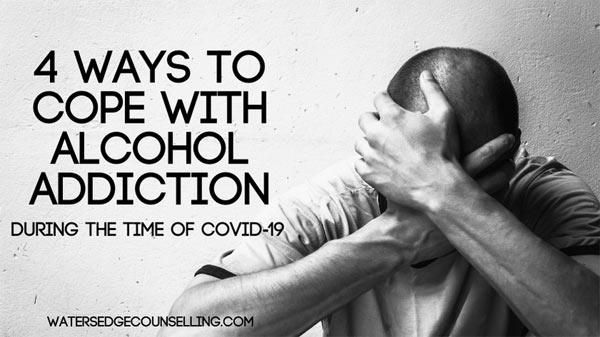
Have you tried using alcohol to cope with stress, especially one that’s brought about by the COVID-19 pandemic? If so, you are not alone. Some studies indicate that consumption of alcohol is considered one of the most common coping responses to stress.
Historically, it has been observed that alcohol consumption increased dramatically after catastrophic events like large-scale natural disasters. Undeniably, the COVID-19 pandemic has lasted longer than previous traumatic events.
As such, it has caused isolation, widespread social disruption, and limited social support, among other things. It has also shown to have a more significant effect on population-wide alcohol use.
If you are struggling with alcohol abuse, there’s no denying the COVID-19 pandemic brings a set of unique and unprecedented challenges that are tricky to navigate.
While you can always seek the help of seasoned DUI defense attorneys if you get involved in alcohol-related accidents, other aspects of alcoholism are harder to deal with in this time of home quarantines and social distancing.
COVID-19 and Alcoholism: How the Pandemic Affects Alcoholics
If you have a drinking problem, below are some of the likely challenges you will face in the time of the pandemic:
- Anxiety
- Loneliness
- Decreased immune system health
- Symptoms of alcohol withdrawal (can be caused by restricted access to alcohol)
It is crucial to acknowledge and understand the challenges the pandemic brings about so you won’t use alcohol to self-medicate and increase your COVID-19 related risks.
Anxiety
When facing the unknown, even the most fearless can go through periods of doubt and fear. With the ongoing threat brought about by the pandemic, it’s understandable you can feel stress for yourself and your loved ones.
If you are an alcoholic, it is likely that you will also experience anxiety as a potential side effect of the alcohol addiction. It’s also likely that any feelings of unease can increase dramatically during these trying times.
Unfortunately, some studies indicate that 18.3% of individuals with general anxiety disorder self-medicate using alcohol. Another 3.3% of people with panic disorders also turn to alcohol for solace and relief.
To combat anxiety, it would help that you limit time spent watching the news. It is also recommended that you become proactive about your mental health. Eat a balanced meal, go for a run or walk, get plenty of rest, and seek professional help if you deem fit.
Isolation
To minimize the spread of the virus and flatten the curve, the Centers for Disease Control and Prevention (CDC) recommended that you abide by social distancing strategies by keeping a 6 feet distance and staying at home.
The problem is if you are already struggling with alcohol, you can feel even more isolated. Studies have indicated that social withdrawal can increase depression and loneliness—two factors closely associated with alcohol abuse.
If you are struggling with alcoholism, maintaining and creating healthy social connections can help lead to sobriety. Fortunately, with the current technology, it is a lot easier to connect with your friends and loved ones.
Make time to connect with your friends, loved ones, therapists, or anyone who can help you get through these tough times. You can also take advantage of 12-step meetings that are now available online.
Weakened Immune System
Many studies have pointed out the association between a weakened immune system and excessive alcohol consumption. That said, you are considered more vulnerable to the health risks associated with the virus if you are an alcoholic. Alcohol abuse has also been linked to different cardiopulmonary issues.
If anything, it is crucial that your body functions at the highest level to fight off the virus especially in times like these. Fortunately, while alcoholism is a relapsing and chronic disease, with professional treatment, you can manage it effectively.
Final Thought
Undeniably, the COVID-19 pandemic has changed almost every aspect of life in unprecedented ways. It is also believed to have a lasting impact on public health and well-being. If you are battling a condition like alcoholism, you can get help, and find ways to combat the condition so you can stay healthy during these unpredictable times.
Are you supporting a loved one with addiction? Contact Colleen on 0434 337 245 or Duncan on 0434 331 243 for a FREE 10 minute consultation on how we can best help you or book online now.